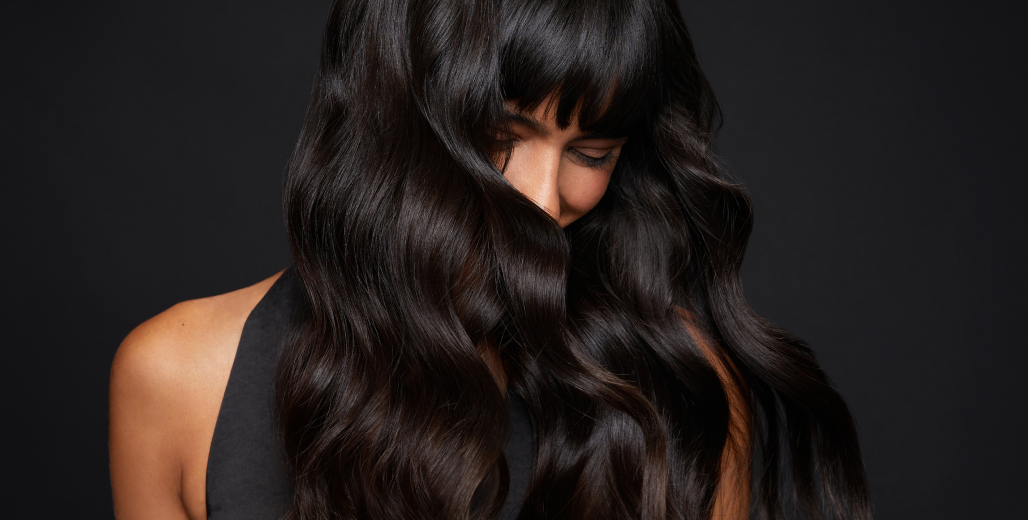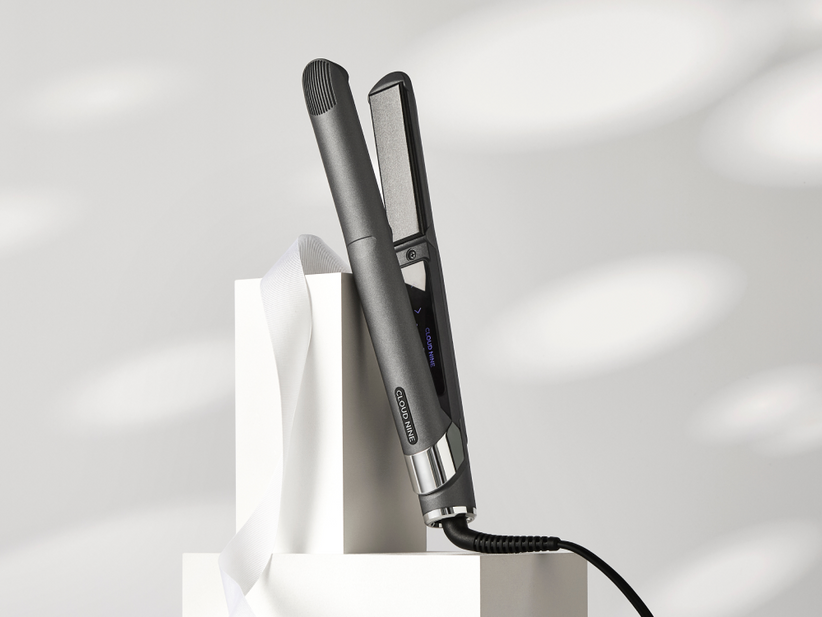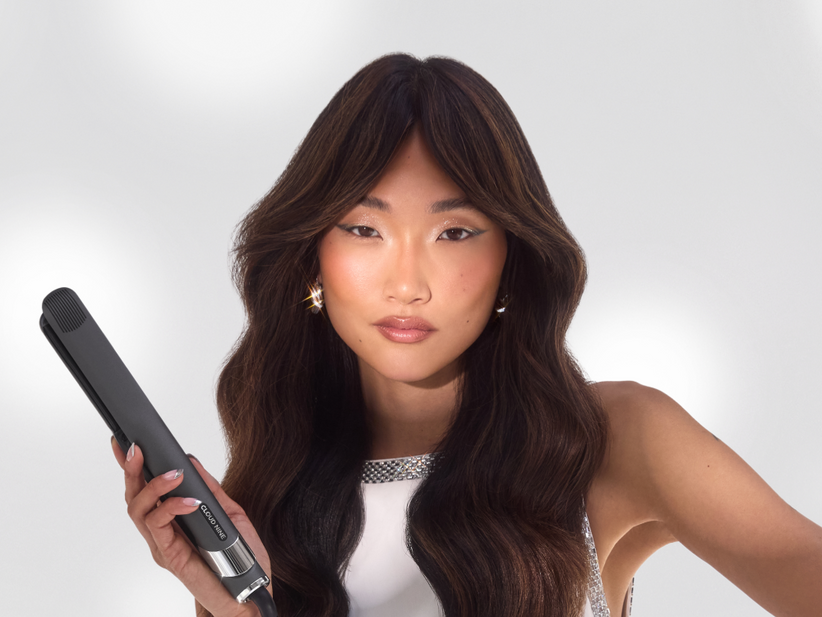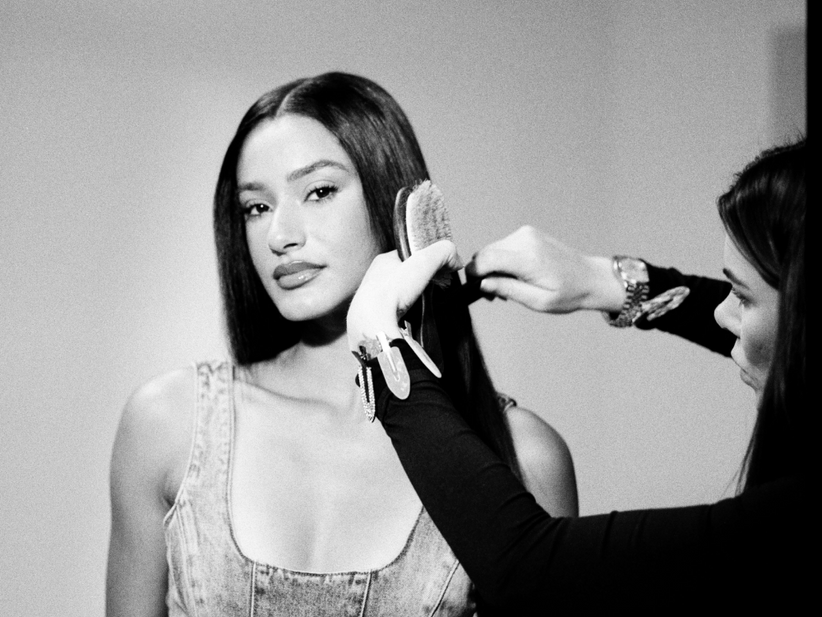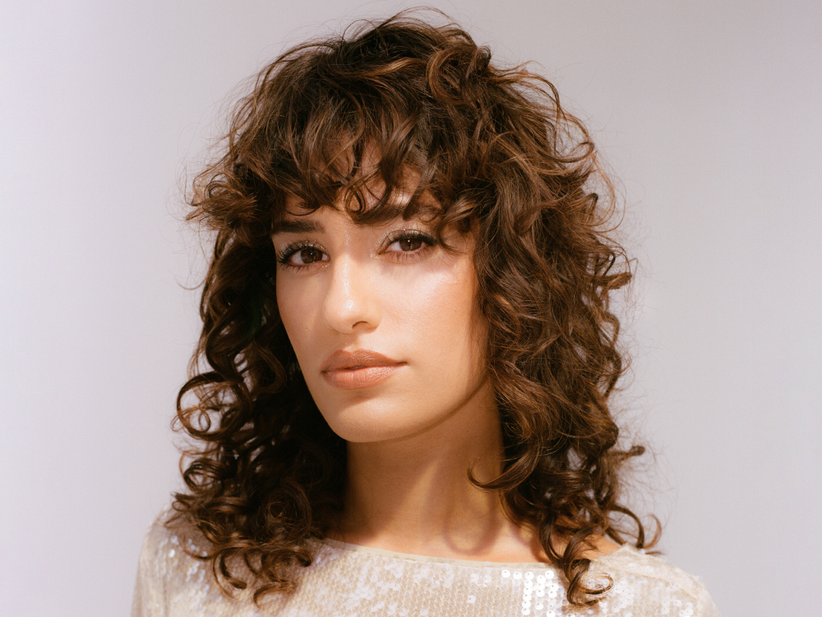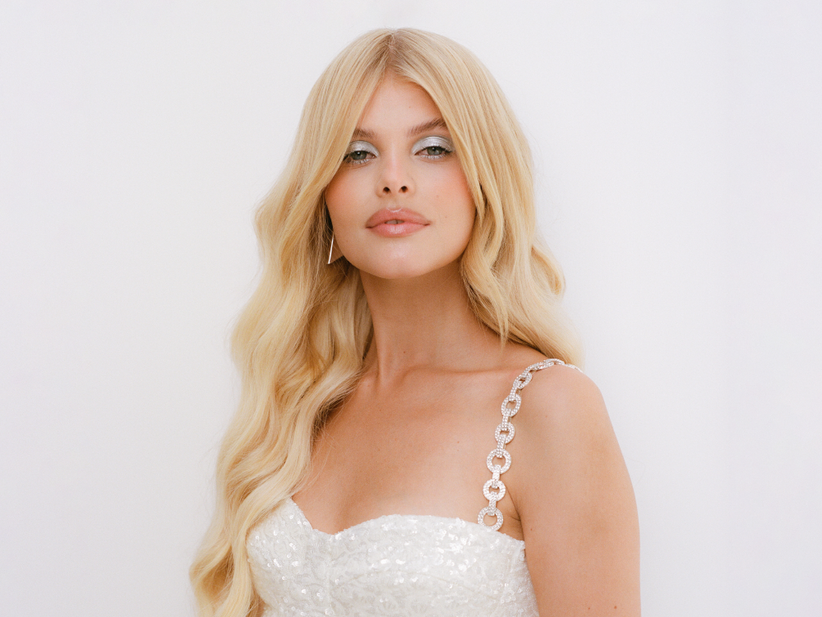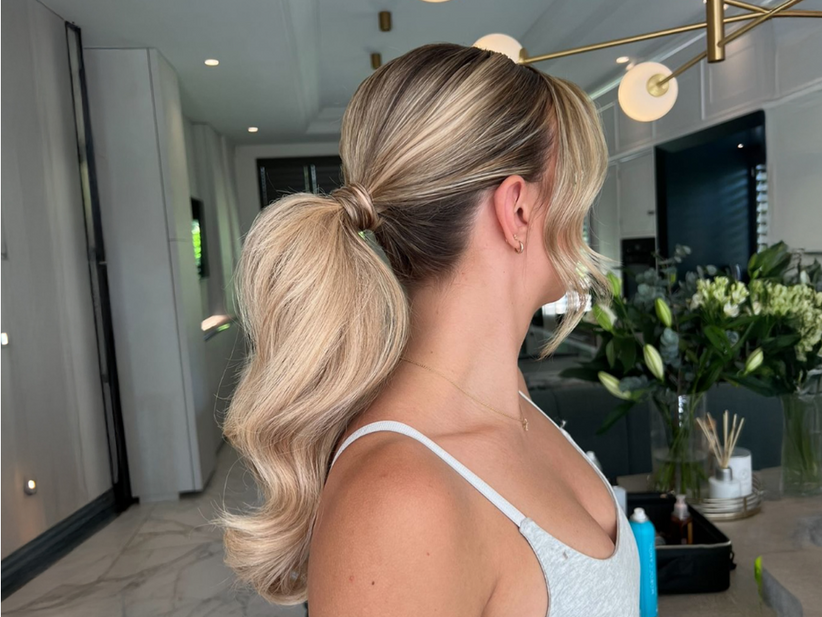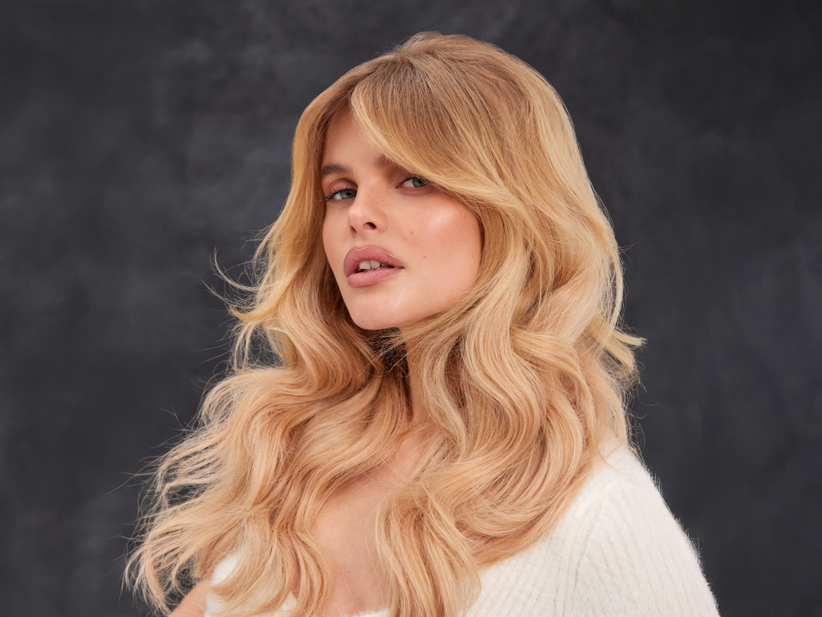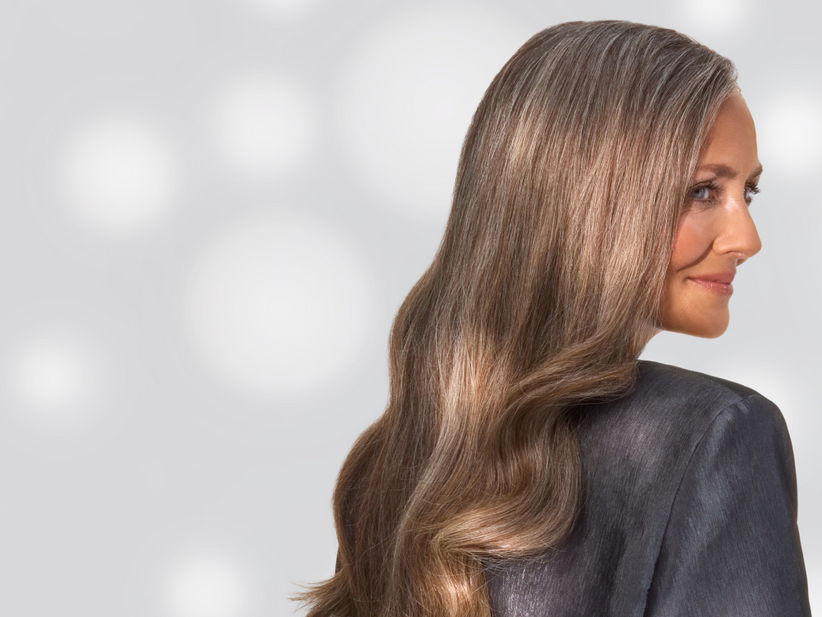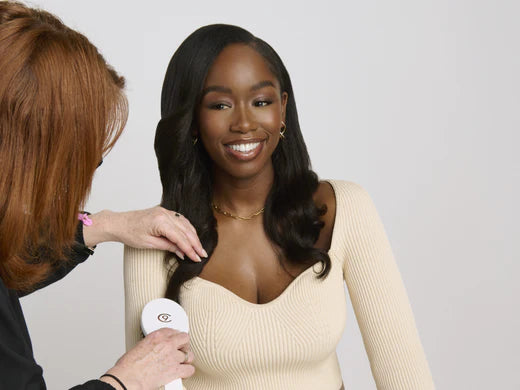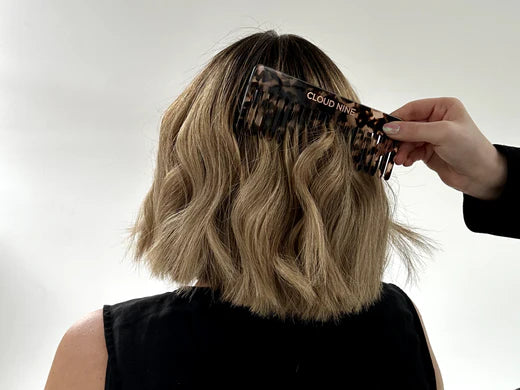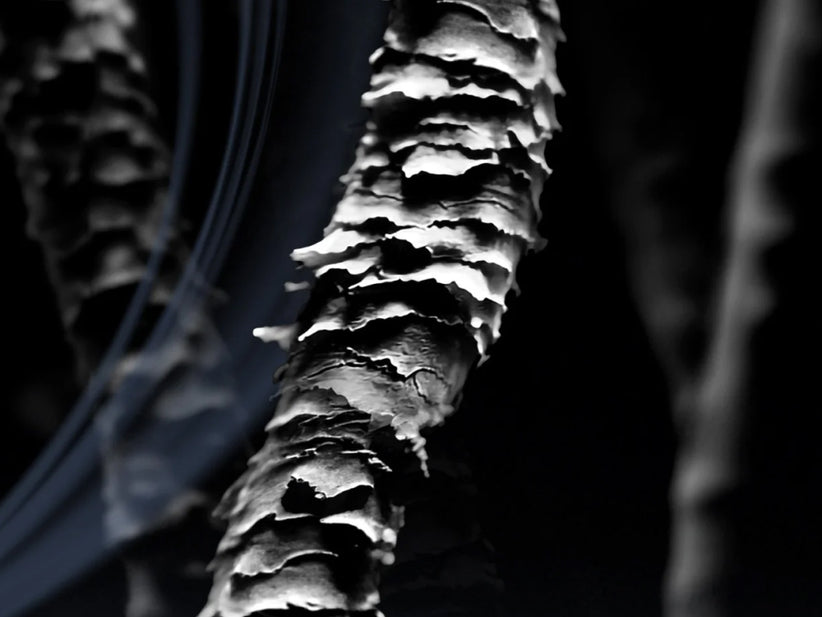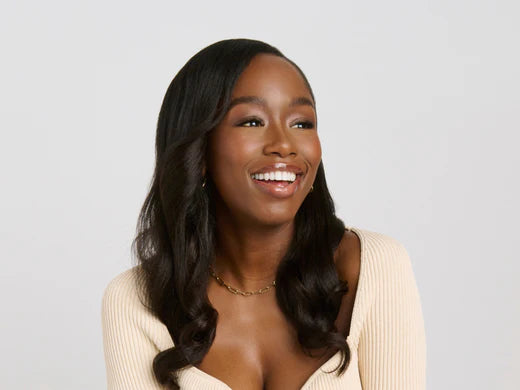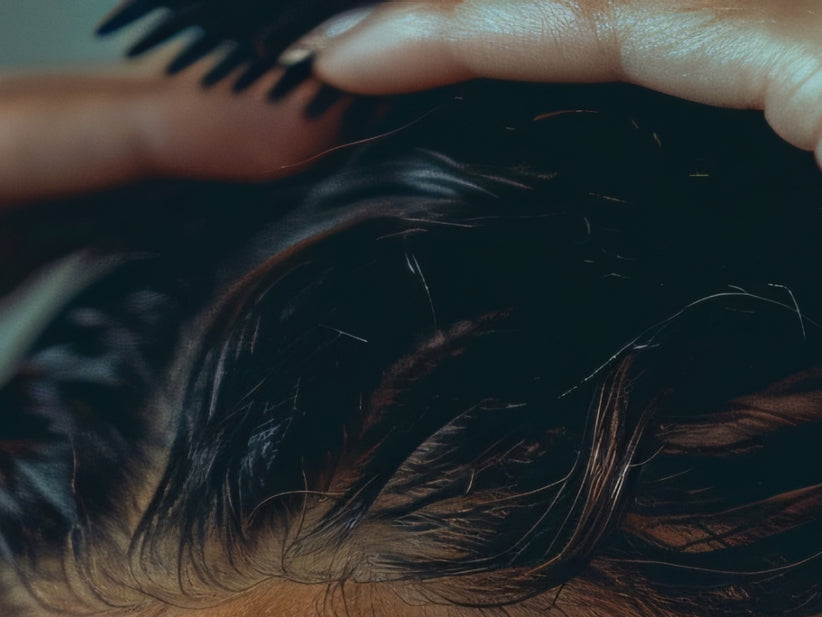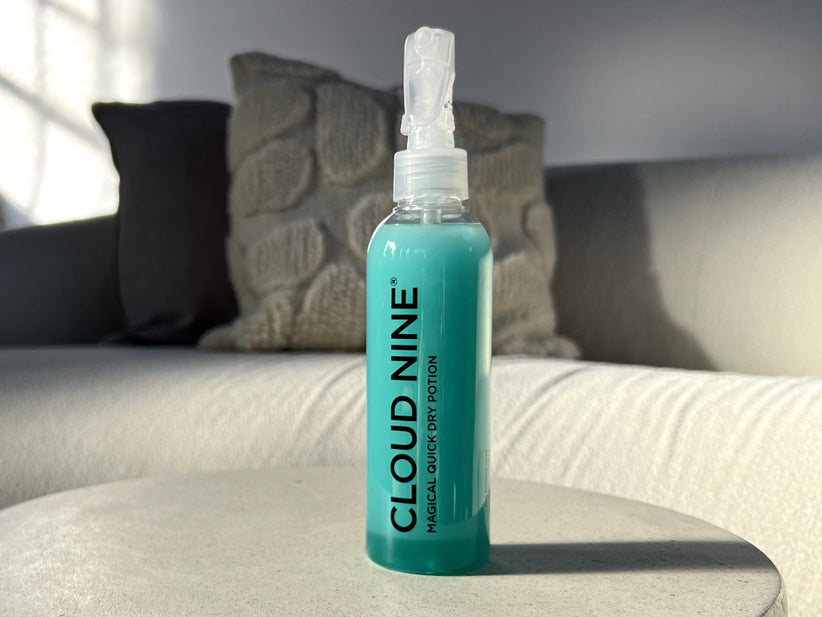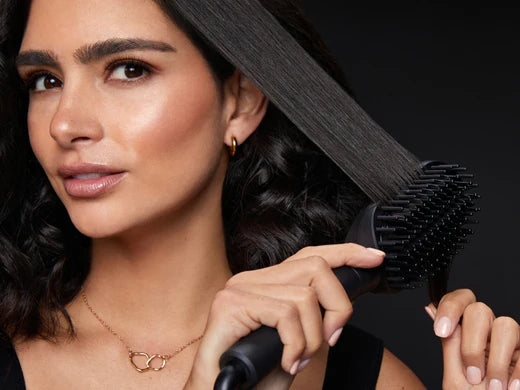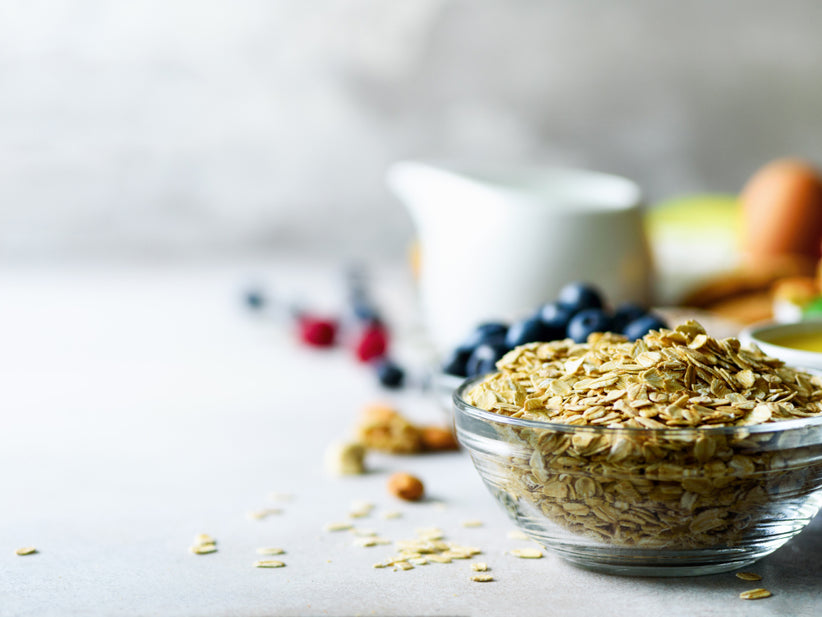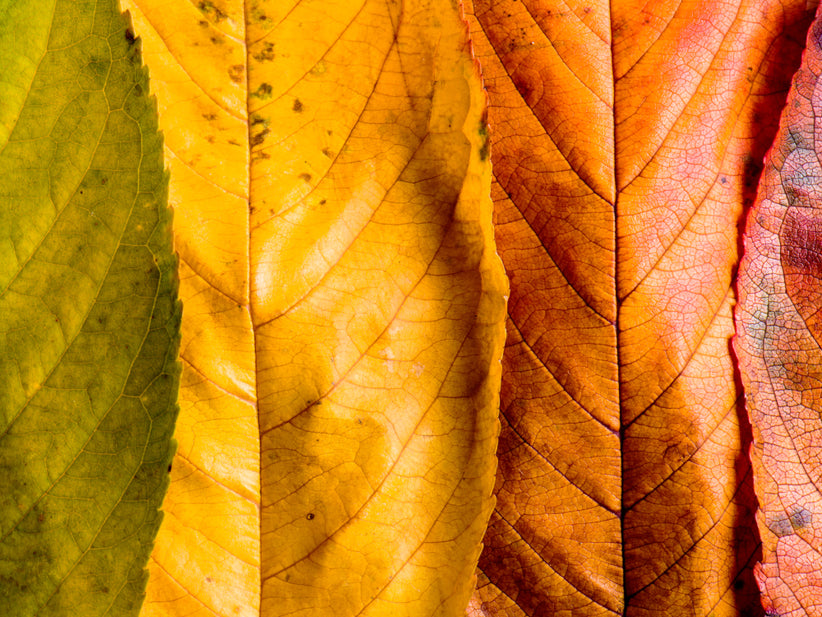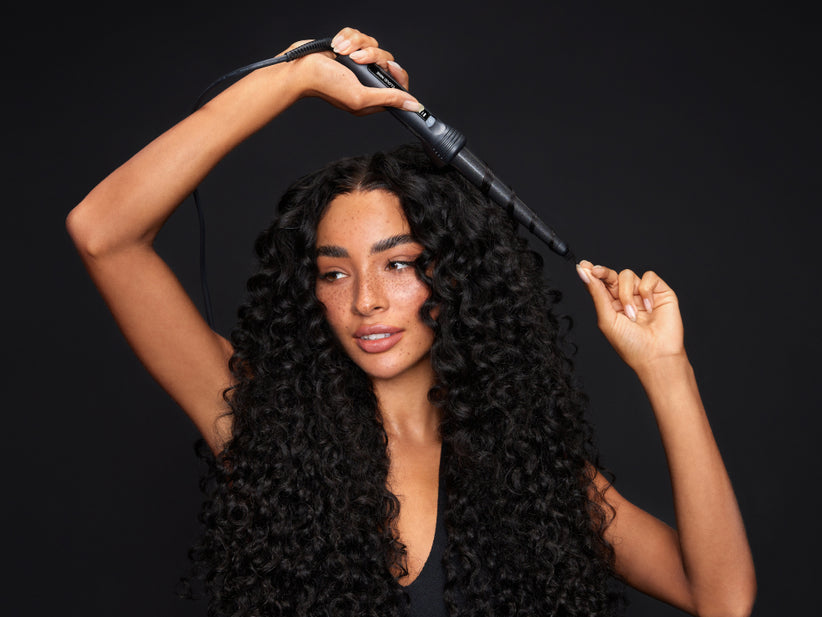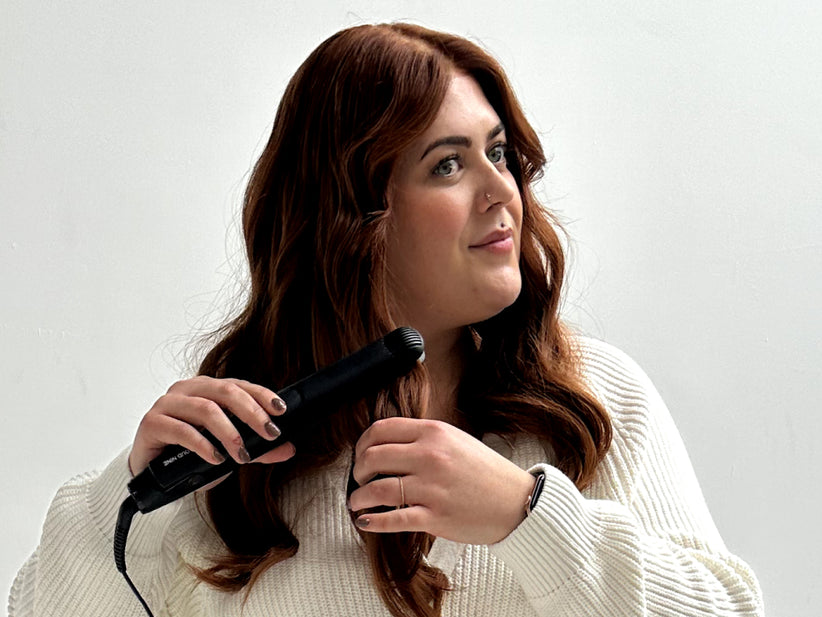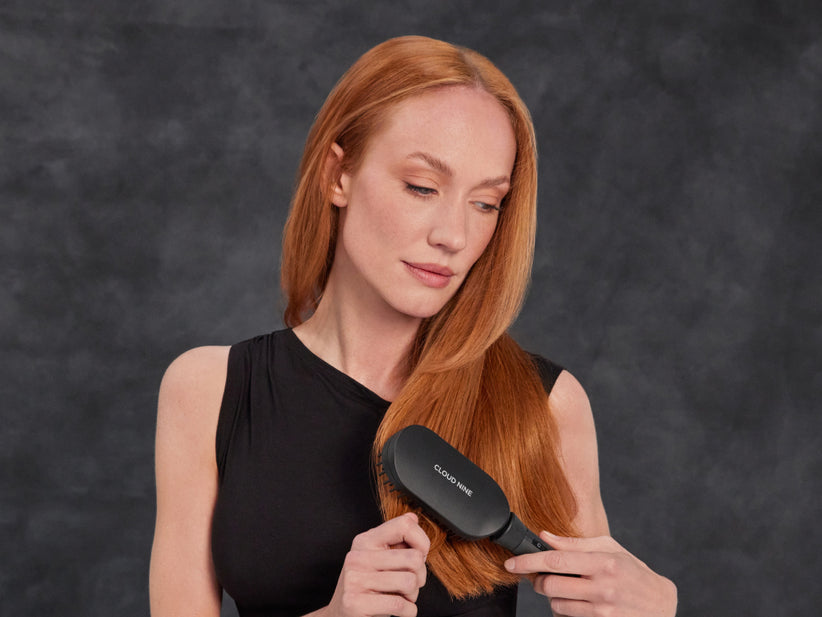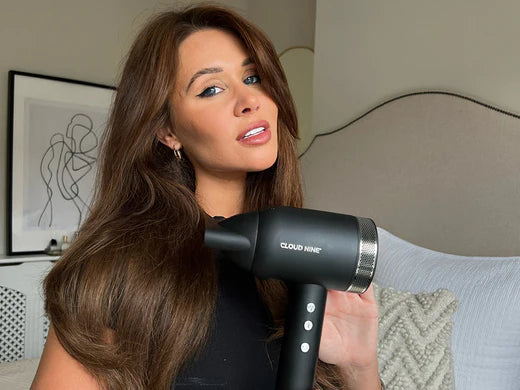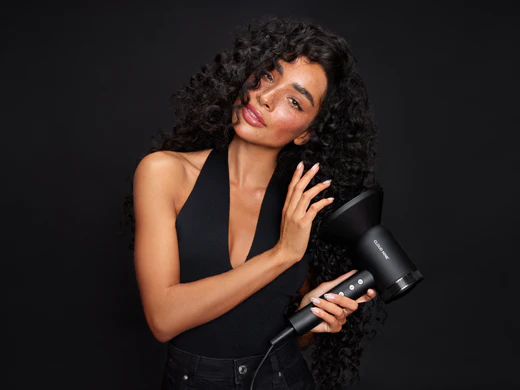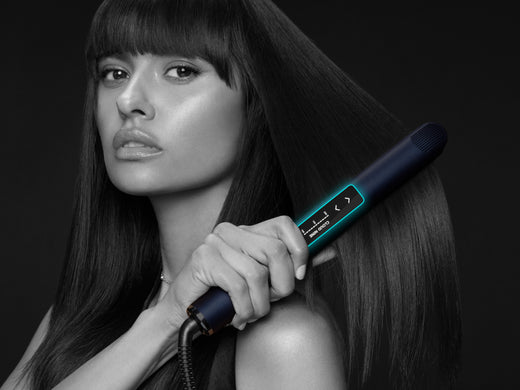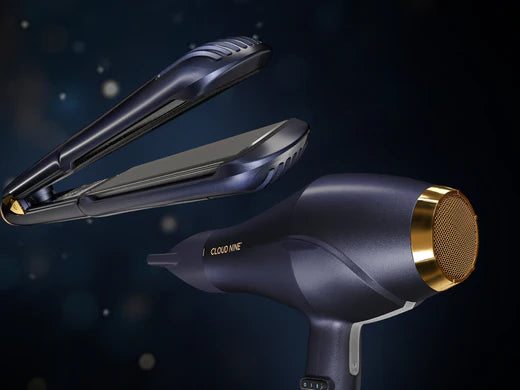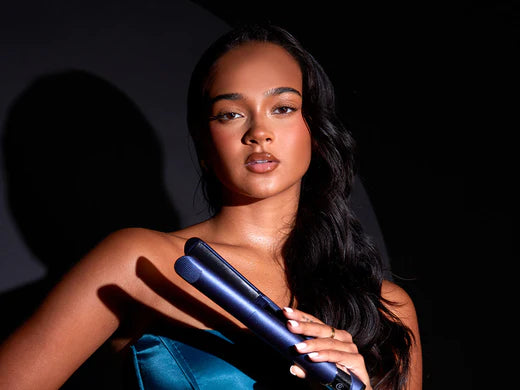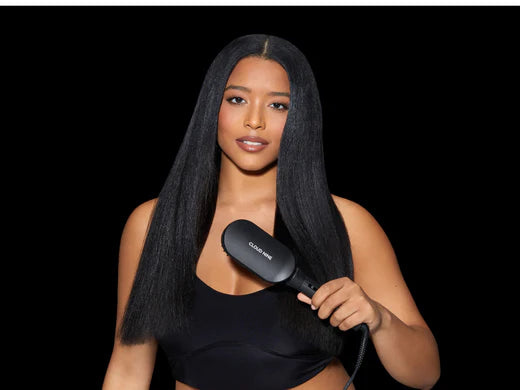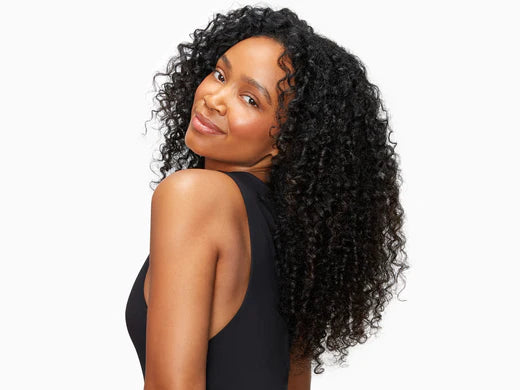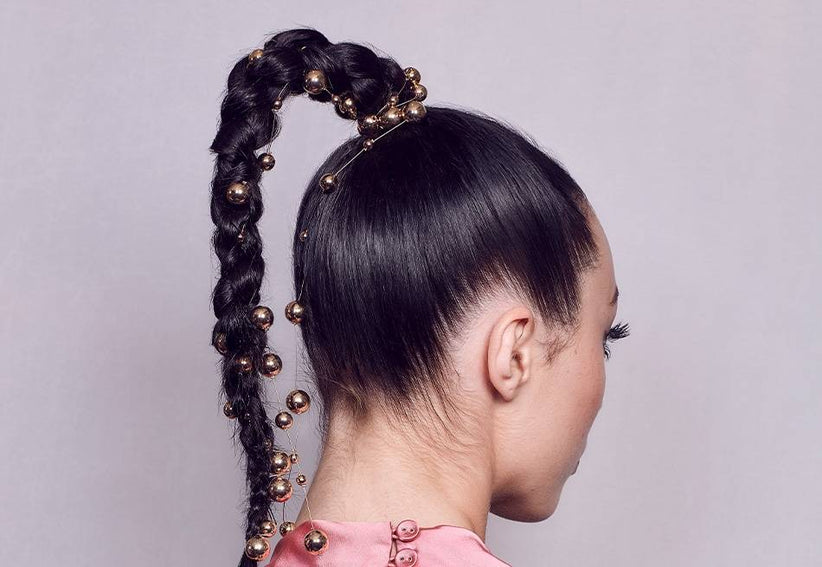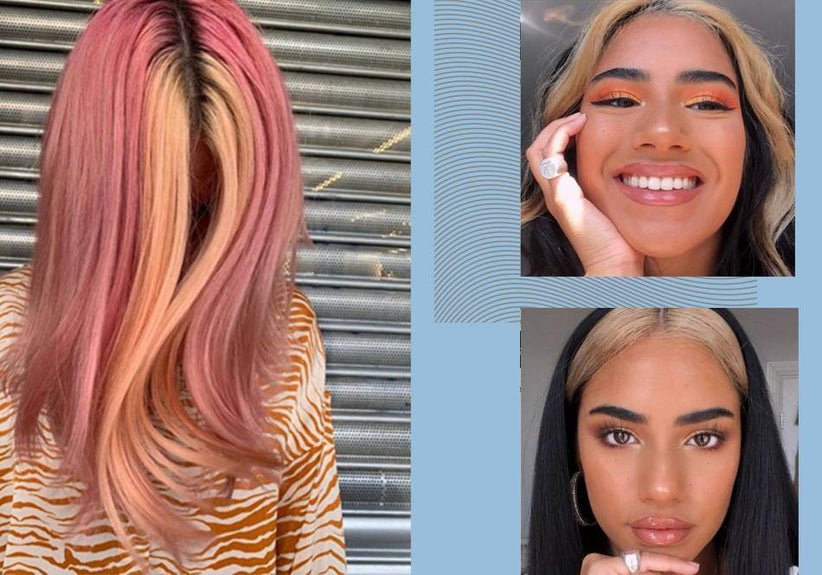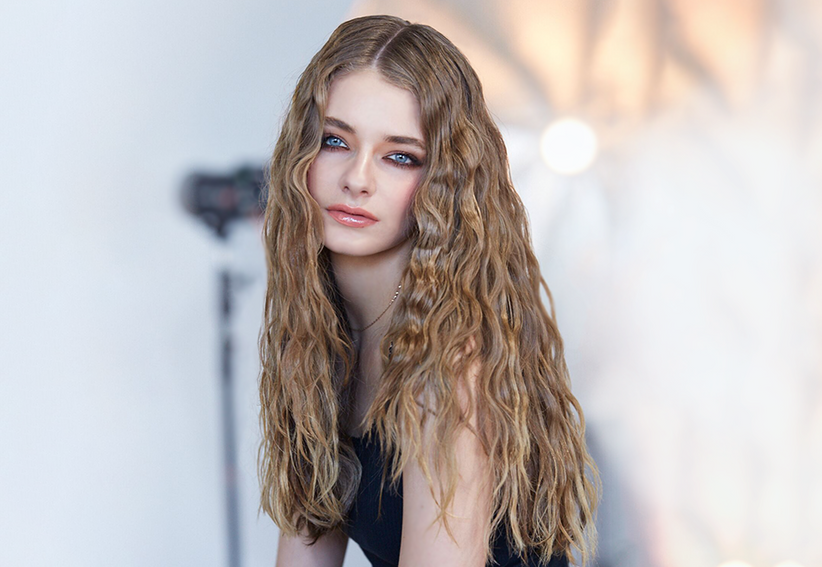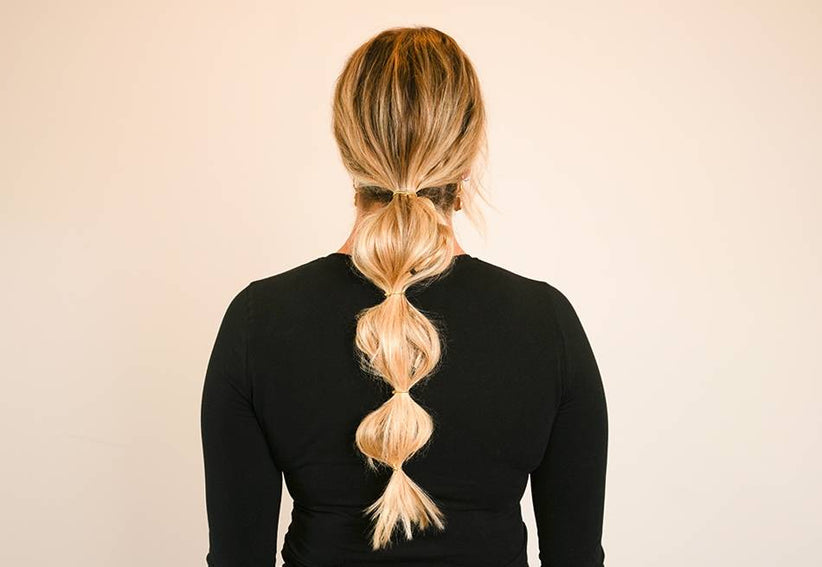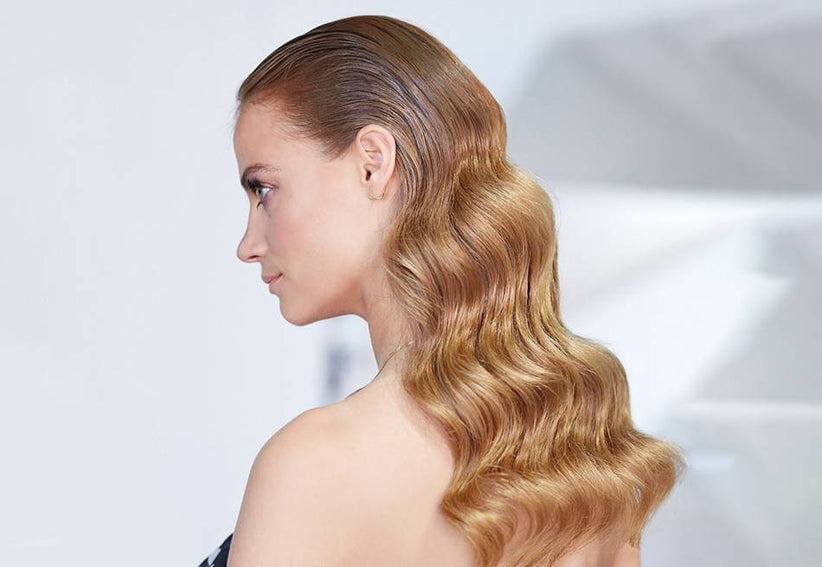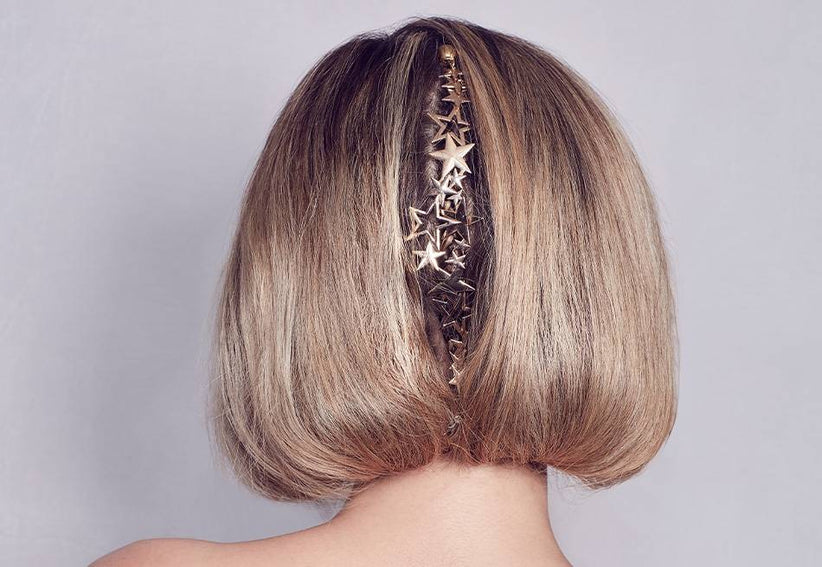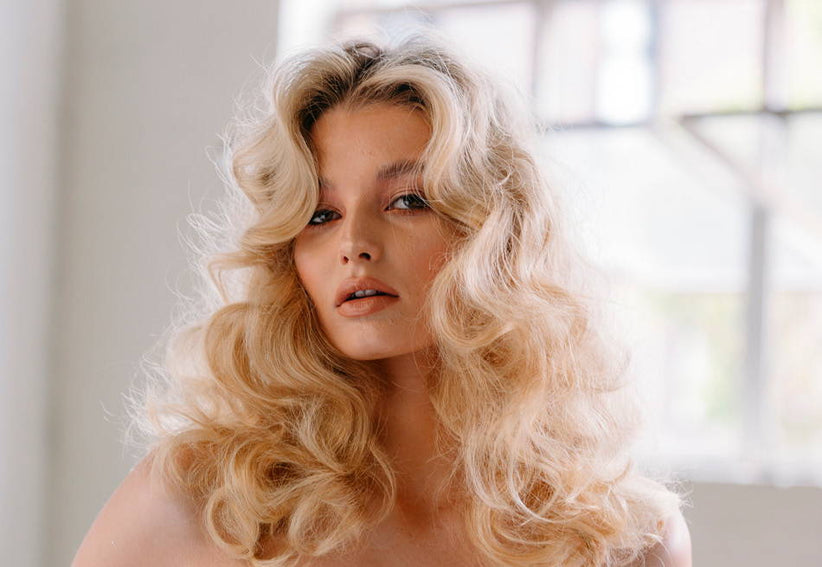NUTRITION: KEY TAKEAWAYS
- For healthy hair, eat a combination of protein and fats, plus food rich in vitamins, minerals and antioxidants.
- Avoid alcohol, sweets and refined carbs.
- During pregnancy, focus on prenatal vitamins, a balanced diet rich in protein, iron, and other essential nutrients, and gentle hair styling.
- Postpartum mothers can combat hair shedding with protein-rich foods, iron, omega-3 fatty acids, and hydration.
- Perimenopause and menopause call for a diet rich in protein, iron, omega-3s, vitamins, and phytoestrogens to support hair health and hormonal balance.
- After menopause, prioritise calcium and vitamin D for bone health.
- In autumn/winter, opt for foods rich in beta-carotene, vitamin C, omega-3s.
- In spring/summer, load up on antioxidants from fruits and veggies, protect hair from UV damage, and stay hydrated.
Food and water can have a huge impact on how our hair looks and feels. But most of us don't even realise it. It can be challenging to know what to put in – or on – our bodies when it comes to the right nutrition for hair. That’s where we come in. Along with our expert nutritionist Clarissa Lenherr, we’ve got the lowdown on how the right nutrition can help you achieve gorgeous, shiny, healthy hair.
WHAT TO EAT FOR HEALTHY HAIR
Think of your hair like a garden that needs the right nutrients to grow lush and beautiful. Just like we need a balanced diet to stay healthy, our hair craves certain nutrients too. Some of these, like biotin and zinc, give your hair the strength and shine it deserves. You can find these magical ingredients in foods or supplements. Here’s our rundown of what to eat for healthy hair.
- Protein: Protein is a universal need for hair health, as 80-90% of the hair is made up of keratin. Protein can be found in lots of foods, including lean meats (beef, lamb, pork), poultry, fish, eggs, dairy products, legumes (beans, lentils or peas), nuts, and seeds.
- Fats: Found in fatty fish like salmon and mackerel, omega-3 fatty acids are healthy fats that support scalp health and hydration, reducing dryness and boosting hair growth.
- Vitamins: Vitamins can work wonders for healthy hair, promoting growth, moisturising the scalp, protecting hair follicles from damage, and improving blood circulation to the scalp.
- Minerals: Minerals are crucial for healthy hair growth, strength, and shine. A good bowl of fortified cereal (with added vitamins and minerals) at breakfast is an ideal way to start the day. Other iron-rich foods include red meat, poultry, fish, lentils and spinach.
- Antioxidants: Antioxidants are molecules that help protect your cells from damage caused by harmful substances called free radicals. They're found in many foods like fruits, vegetables, and nuts, and they play a crucial role in keeping your cells and tissues in good shape.
- Hydration: Water is essential for healthy hair growth and maintenance, so drink plenty of it. The NHS recommends drinking around 6-8 cups (two litres) of water per day to keep your scalp hydrated.
Find out more about key nutrients for healthy hair.
FOODS TO EAT MORE OF
We understand that it can seem overwhelming to figure out which foods to include in a balanced diet, so here’s your ultimate healthy hair checklist:
- Fatty fish: Omega-3-rich seafood such as salmon, herring, and mackerel contain protein, vitamin E, and biotin which help fight skin inflammation.
- Sweet potatoes: Another anti-inflammatory, sweet potatoes are rich in beta-carotene and antioxidants.
- Nuts and seeds: Sunflower seeds, almonds and walnuts provide biotin, protein, and vitamin E – all great for your skin and hair.
- Avocados: These are packed with healthy fats and vital nutrients like vitamins C, A, and E to ward against wrinkles.
- Eggs: Rich in protein, eggs are crucial for maintaining hair strength and preventing brittleness.
- Dark, leafy greens: Load up on spinach, kale, and other dark greens, to help your hair, skin, and nails.
- Oysters: These are an excellent source of zinc, necessary for hair growth and tissue repair.
- Water-rich foods: Stay hydrated by eating foods with high water content, such as cucumbers, watermelon, celery, and strawberries.
FOODS TO AVOID
Maintaining healthy hair isn't just about what you eat – it's also about what you don’t eat. Here's a list of foods to steer clear of for healthier hair:
- Alcohol: While toasting with a drink may be tempting, alcohol dehydrates your body and interferes with normal maintenance processes. It can lead to dryness, brittleness, and potential hair loss.
- Processed food: Ultra-processed foods can trigger inflammation in the body, which is detrimental to skin and nail health. Avoid items like packaged snacks, sweets, biscuits, cakes, margarine, cereals, instant soups, processed meat, and cheese.
- Ultra-sweetened drinks: Drinks high in sugar, such as fizzy drinks, juice, sweetened iced tea, and sugary coffee drinks, can accelerate skin ageing and could lead to hair loss, especially during menopause.
- Sweets: Foods high in sugar or refined flour cause spikes in blood sugar levels, leading to increased production of androgens – hormones that can shrink hair follicles and lead to hair loss.
- Too much animal protein: While protein is essential for hair strength, eating too much animal protein can have a negative impact on your hair. Swap some meat for plant-based proteins to boost your cystine intake, a precursor to keratin.
- High-mercury fish: Avoid too much high-mercury seafood like swordfish. Instead, go for omega-3-rich fish such as salmon, canned light tuna, and halibut, which help combat inflammation and encourage hair growth.
- Greasy food: Foods high in saturated fats and hydrogenated oils can clog pores, including those on the scalp. Steer clear of foods made with trans fats, such as hard margarine, baked goods, and crackers.
THE LINK BETWEEN HAIR LOSS AND NUTRITION
Hair loss or shedding can be caused by lots of factors, from genetics to hormonal shifts, health issues to medications, and lifestyle. But what you eat (or don’t eat) also plays a massive role in how your hair looks and feels, and you could help prevent hair loss from worsening by being mindful of the nutrients you’re putting in your body.
Check out our blog for more info about the link between hair loss and hormones.
So, what’s the link between food and hair loss? Nutrients such as protein, iron, zinc, and vitamins A, C, D, and B-complex ones help keep your hair follicles strong and your scalp in great shape. Proteins are like the building blocks of your hair. Iron and zinc act as a delivery service, making sure oxygen and nutrients get where they need to go. Vitamins and antioxidants act as a shield, protecting your hair from damage. And finally, keeping your scalp hydrated will avoid dry, brittle hair.
Discover more information and support about how to manage the symptoms of hormonal hair loss. If you notice any unusual hair loss or shedding, it could be linked with seasonal factors, but it’s a good idea to chat to your doctor, who can help work out the causes of your hair loss and map out a plan to get your hair back on track.
NUTRITION DURING AND AFTER PREGNANCY
Whether you're navigating the ups and downs of pregnancy or embarking on post-partum life, the NHS recommends feeding your body – and your baby – the good stuff. So, grab that green smoothie, load up on those nutrient-rich snacks, and keep reading for our top nutrition tips to achieve great hair during and after pregnancy.
Prenatal nutrition for healthy hair
Pregnancy can be the ultimate rollercoaster ride of emotions, cravings, and huge changes to your body. Growing a tiny human is no small feat, and it's no secret that it can take a toll on your body. When it comes to supporting your health and your baby's development, your diet is your secret weapon.
- Prenatal vitamin supplements: Enter prenatal vitamin supplements, the unsung heroes of pregnancy nutrition. These little capsules deliver a powerhouse blend of essential nutrients straight to your growing baby. From B vitamins to calcium, folic acid to omega-3 fatty acids, these supplements are like a daily dose of goodness for you and your little one.
- Balanced diet: What's on the menu for the expectant mama looking to boost hair health? Think protein-packed meals to keep you feeling full and energised, iron-rich leafy greens to support healthy blood flow, and zinc and vitamin-packed goodies to nourish your growing baby. There’s no concrete evidence linking prenatal vitamins to hair growth, but a healthy diet is all-important.
- Folic acid: Folic acid is a B vitamin that prevents neural tube defects in your developing baby. Plus, it's a key player in supporting the growth of your placenta and can keep anaemia at bay.
- Gentle styling: In pregnancy, it’s not just a healthy diet that helps your hair, but gentle styling too. By avoiding harsh treatments, lowering the heat on your heated heat tools, and handling your hair gently, you can help maintain healthy hair through pregnancy and beyond. By using heated hair stools with Variable Temperature Control such as the CLOUD NINE 2-in-1 Contouring Iron Pro, you can style your prenatal hair at a lower temperature for kinder hair styling.
Postpartum nutrition for healthy hair
So, you've welcomed your little bundle of joy into the world, and now you're figuring out postpartum life. Amid the sleepless nights and endless nappy changes, you might find yourself staring in the mirror, wondering what's up with your hair. Postpartum hair loss affects many new mums, particularly around the three-month mark, but fear not, because what you put on your plate might be the answer.
- Postpartum shedding: You might notice more hair in your brush or swirling down the shower drain than usual. Don't panic – it's totally normal. During pregnancy, raised hormone levels can put your hair in a longer growth phase, leading to thicker, fuller hair. But once the baby arrives and those hormones start to level out, your hair might decide it's time to shed the extra weight. If you don’t notice any regrowth after four months (like tiny baby hairs around your scalp) then it’s time to consult your doctor.
- Balanced diet: While postpartum shedding is par for the course, there are ways to support your hair health from the inside out. Fuelling your body with the right nutrients can help promote hair growth and minimise the impact of postpartum shedding.
- Protein: Your hair is primarily made up of protein, so it's essential to get enough of it in your diet. Think lean meats, poultry, fish, eggs, beans, and legumes (beans and lentils). Not only will protein help strengthen your strands, but it'll also keep you feeling full and fuelled for all those late-night feeds.
- Iron: Low iron levels can add to hair loss, so it's crucial to pump up your intake, especially if you experienced any blood loss during childbirth. Load up on iron-rich foods like spinach, lentils, red meat, and fortified cereals to keep your hair – and your energy levels – going strong.
- Omega-3 fatty acid: Found in fatty fish like salmon, walnuts, and flaxseeds, these healthy fats can help nourish your scalp and support hair growth. Plus, they're great for your overall health, so it's a win-win.
So, there you have it – your postpartum hair survival guide, brought to you by the power of nutrition. While you might be shedding a few extra strands these days, remember that it's all part of the journey. By fuelling your body with protein, iron, and omega-3s, you can give your hair the love and support it needs to bounce back stronger than ever. And hey, if all else fails, there's always the CLOUD NINE silk hair scrunchies for a trusty mum bun.
NUTRITION FOR HEALTHY HAIR BEFORE AND DURING MENOPAUSE
“While I recommend that everyone gets a blood test to look for specific deficiencies, some nutrients offer benefits for everyone, especially in mid and later life. Iron is crucial for hair growth and, with 30% of the global population suffering from anaemia, it’s one nutrient that we should all be looking to include more of in our diet.”
Menopause is a time of change, both physically and emotionally. And while we often talk about hot flashes and mood swings, one aspect of menopause that often flies under the radar is its impact on hair health. But when it comes to keeping those locks luscious and vibrant, it's all about nourishing your body from the inside out.
Perimenopause
When you hit perimenopause, or the perimenopause life stage, your body starts throwing some curveballs your way. Think irregular periods, hot flushes, and mood swings. Plus, there's the joy of night sweats interrupting your sleep, and a sudden drop in energy levels that can leave you feeling like you need a nap every hour. You may also see changes in your hair and skin, with your hair losing its lustre and your skin feeling dry. Basically, if you're in your late 40s or early 50s and feeling like your body's playing tricks on you, you might just be hitting perimenopause. Pay attention to your nutrition during this phase to ensure you – and your hair – stay as healthy as possible.
- Fibre: Hormonal changes can mess with your digestive system, leading to bloating and constipation, so load up on fibre-rich goodies like whole grains, fruits, veggies, nuts, and legumes (beans and lentils) to keep things running smoothly. Fibre also helps stabilise your blood sugar and can even help lower cholesterol.
- Protein: Getting enough protein during perimenopause is key for keeping your muscles strong, managing your appetite, and even improving your cholesterol levels. So, make sure to include plenty of lean meats, poultry, fish, dairy, eggs, legumes, and plant-based protein sources in your meals to keep you feeling satisfied and strong.
- Calcium and vitamin D: As your oestrogen levels drop, so does your bone density, which means it's crucial to up your intake of these bone-loving nutrients. Load up on calcium-rich foods like dairy, leafy greens, tofu, and fortified plant-based milk, and don't forget to soak up some sunshine or take a supplement to get your daily dose of vitamin D.
- Omega-3 fatty acids: These are another must-have during perimenopause, as they can help support heart health and keep those mood swings in check. Stock up on fatty fish, flaxseeds, chia seeds, olive oil, and walnuts to keep your heart happy and your mood steady.
- Healthy fats: Avocados, nuts, seeds, olive oil, and fatty fish are all packed with heart-healthy fats.
- Phytoestrogens and magnesium: These plant-based minerals can help balance out your hormones. Load up on organic soy products, flaxseeds, whole grains, legumes, fruits, and veggies, and consider popping a magnesium supplement alongside your vitamin D for an extra boost.
During Menopause
As our bodies go through menopause, hormonal fluctuations can wreak havoc on our hair. Oestrogen levels decline, leading to a decrease in hair thickness and volume, while testosterone levels may increase, potentially contributing to hair thinning and loss. Add to that the effects of ageing and environmental stressors, and it's no wonder many menopausal women find themselves grappling with hair loss. To combat or lessen the impact of this, here are some ways your diet can help:
- Protein: Time to load up on those lean proteins. Think chicken, fish, tofu, and beans. These goodies provide the building blocks our hair needs to stay strong and healthy.
- Iron: Don't forget your leafy greens and lentils. They're packed with iron, which is like fuel for our hair.
- Omega-3 fatty acids: Say hello to salmon, chia seeds, and walnuts. These omega-3-rich foods are like a treat for your scalp, helping to nourish and support healthy hair growth.
- Vitamins: Time to load up on fruits and veggies. They're bursting with vitamins and minerals like vitamin C, vitamin E, and zinc, all of which are crucial for keeping your scalp happy and your hair looking its best.
- Biotin: Don't forget to add some eggs, nuts, seeds, and avocados into your meals. These foods are packed with biotin, a B-vitamin that's like a superhero for helping hair growth.
- Stay hydrated: Last but not least, don't forget to drink plenty of water. Hydration is key for maintaining scalp health and supporting overall hair growth. So, keep that water bottle handy and sip away.
After Menopause
So, you've made it to the other side of menopause, but you might be wondering what’s next for your hair. You may have noticed your hair is thinner or greyer than it used to be, or the texture has changed, for example it might be curlier, thinner or coarser. While these changes may not be reversible, you can embrace these signs of ageing by maximising your diet.
- Calcium: After menopause, your oestrogen levels take a nosedive, which can put you at risk for osteoporosis. That’s where calcium can help. You can get your daily dose of calcium from food sources like dairy products, leafy greens, tofu, and fortified plant-based milk. But before you go popping those calcium supplements, make sure to chat with your GP first. While getting enough calcium is important, studies have shown that taking calcium supplements might actually increase your risk of a heart attack.
- Vitamin D: Your body needs vitamin D to absorb all that calcium goodness, so make sure you're getting enough of this sunshine vitamin every day. So, get your vitamin D fix from sources like fatty fish, fortified dairy or plant-based milk, and good old sunshine. But like calcium, don't go overboard with your intake of Vitamin D because too much can actually do more harm than good.
Be sure to check out our blog about how to keep your hair healthy during menopause where you’ll find expert tips and support.
NUTRITION FOR HEALTHY HAIR IN AUTUMN/WINTER
As the leaves change colour and the temperatures drop, it's not just our wardrobes that need adjusting – our hair could use some extra love too. As the air gets drier and colder, our hair tends to become more prone to dryness, seasonal shedding, and overall dullness. Plus, indoor heating can sap moisture from the air, leaving our hair feeling parched. Here’s how your diet can keep your hair healthy during the autumn and winter months.
- Beta-carotene: Think hearty root vegetables like sweet potatoes and carrots, packed with beta-carotene to promote scalp health and stimulate hair growth.
- Vitamin C: Delicious winter fruits like oranges and kiwis are loaded with vitamin C to boost collagen production and keep your locks strong and shiny.
- Hydration: It's easy to forget to drink enough water when it's chilly outside, but hydration is crucial for keeping your hair moisturised from the inside out. So, sip on warm herbal teas, hearty soups, and tasty broths.
- Omega-3 fatty acids: Avocados, nuts, seeds, and fatty fish like salmon are all excellent sources of omega-3 fatty acids, which help nourish your scalp and promote healthy hair growth. Plus, they'll keep your skin glowing too.
- Homemade hair mask: Treat yourself to a cosy night in with a homemade hair mask. Ingredients like honey, coconut oil, and yoghurt can work wonders for restoring moisture and shine to dry, winter-weary hair.
NUTRITION FOR HEALTHY HAIR IN SPRING/SUMMER
As we trade in our winter coats for swimming costumes and sandals, it's time to give our hair the seasonal TLC it craves for the warmer months. As the temperatures rise and the sun shines brighter, our hair faces some unique challenges. Increased sun exposure can lead to dryness, frizz, and even damage from UV rays. Plus, the heat and humidity can cause our scalps to produce more oil, leaving our hair feeling greasy and weighed down. So, whether you're lounging by the pool or dancing barefoot in the sand, these nutrition tips will help your hair to shine all summer long.
- Antioxidants: Load up on antioxidant-rich fruits like berries, watermelon, and citrus fruits to combat free radicals and protect your hair from UV damage. And don't forget about leafy greens and colourful veggies like spinach, kale, and bell peppers – they're packed with vitamins and minerals that promote scalp health and encourage hair growth.
- Fresh fruits: One of the best parts about spring and summer is the abundance of fresh, seasonal produce. Whip up a refreshing salad with tomatoes, cucumbers, and radishes, or blend up a delicious smoothie with tropical fruits like mango, pineapple, and papaya. These hydrating treats will not only keep you cool and refreshed but will also give your hair the nutrients it needs to thrive in the summer sun.
- UV protection: No summer hair care routine would be complete without a little extra sun protection. Invest in a good quality spray or lotion with UV filters to shield your hair from the sun's harmful rays. And don't forget a hat or scarf when you're spending time outdoors – not only will it protect your hair, but it'll also add a touch of glamour to your summer look.
EASY WINS
With so much information in this blog, here’s a roundup of quick and easy wins for good hair nutrition:
- Hydrate: Drink plenty of water throughout the day to keep your hair hydrated from the inside out.
- Nutritious snacks: Snack smart with nutrient-rich foods like nuts, seeds, and fruit to give your hair a healthy boost on the go.
- Protein-rich foods: Eat plenty of lean meats, eggs, and legumes (beans and lentils).
- Leafy greens: Add spinach and kale to your plate for a dose of hair-loving vitamins and minerals.
- Omega-3 fatty acids: Enjoy fatty fish like salmon or sprinkle some flax seeds on your salad for a hair-nourishing omega-3 boost.
BEYOND NUTRITION
Caring for your hair goes beyond just nutrition. Incorporating a holistic approach to hair care can make a significant difference in its health and appearance.
- Take care of your hair: Use gentle shampoos and conditioners (suitable for your hair type) and avoid over-washing, which can strip away natural oils. Try our Magical Remedy for a versatile, nutrient-packed conditioner that can help restore your hair’s natural oils.
- Protect your hair from heat damage: Before heat styling, use a heat protectant product like our Magical Potion.
- Style loosely: Use gentle hair styling products like our silk scrunchies to minimise tension and breakage.
- Have regular trims: Get your hair trimmed regularly to help prevent split ends and keep your hair looking fresh.
- Protect your hair from the sun: Use hats or scarves to shield your hair from the sun.
- Look after your scalp: Finally, a gentle scalp massage can work wonders for your scalp to stimulate circulation.
Check out our 9-Day Detox guides for more expert hints and tricks for healthy hair. From a hydrating cleanse on day one to celebrating your hair on day nine, you’ll find a wealth of healthy hair tips to choose from.
HAIR NUTRITION FAQS
How do I know if my hair is lacking in nutrients?
Signs of nutrient deficiencies in hair may include excessive shedding, dullness, dryness, and slow growth. Get in touch with your GP or a nutritionist for help in identifying any potential deficiencies.
How do I know which nutrients my hair needs?
While specific nutrient needs can vary from person to person, a balanced diet rich in a variety of whole foods, including fruits, vegetables, lean proteins, whole grains, and healthy fats, can generally provide the necessary nutrients for healthy hair.
How do I know what nutrients are in my food?
You can check the nutrition labels on food packaging for information about the nutrients in a particular product. Additionally, many online resources and smartphone apps provide nutritional information for different foods.
What should I be eating if I’m too busy to think about what I eat?
For busy people, it's important to prioritise convenience without sacrificing nutrition. Go for nutrient-dense, grab-and-go options like fresh fruits, pre-cut vegetables, nuts, seeds, yoghurt and whole grain crackers. Try batch-cooking healthy meals on weekends to have nutritious options readily available throughout the week.
What specific foods should I eat to promote hair growth?
Load up on salmon, eggs, and spinach for omega-3s, biotin, and iron. Sweet potatoes and avocados provide beta-carotene and healthy fats, while nuts, seeds, and berries bring essential vitamins and antioxidants. Greek yoghurt is also great for a protein and vitamin B5 boost.
Are there any foods I should avoid to prevent hair loss?
Steer clear of sugary treats, greasy fast foods, and excessive alcohol. These can lead to poor nutrition and scalp issues. High-mercury fish like swordfish can also be a problem, so opt for low-mercury options like salmon. Cut back on crash diets as they can cause hair to shed due to sudden nutrient loss.
If you have questions or need more support with your nutrition or hair health, reach out to your GP, nutritionist, or hairdresser.


.jpg?v=1724140515432)
